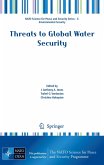Over the last 20 years, the foundations of local and national water systems have been rocked by a wave of changes. The authors in this book, experts in a wide range of disciplines, address the resulting debates and issues: water as a commodity and patrimony, technological rent, liberalization and privatization, the continuing evolution of water management and policy at the European level, decision making and stakeholder participation, conflict and consensus, and the inevitable growth of counterpowers at the local and international levels, promoted by the advocates of sustainable development.
The selected case studies are from Europe (primarily France but also Spain, Germany, the United Kingdom, and Portugal), Latin America (Argentina, Bolivia), the United States, Lebanon, and India.
From this diverse collection of comparative perspectives and research methods, Globalized Water seeks to advance interdisciplinary research, contributing to a new and dynamic role for social sciences and governance on water.
Dieser Download kann aus rechtlichen Gründen nur mit Rechnungsadresse in A, B, BG, CY, CZ, D, DK, EW, E, FIN, F, GR, HR, H, IRL, I, LT, L, LR, M, NL, PL, P, R, S, SLO, SK ausgeliefert werden.
"This volume, edited by Schneier-Madanes (emer., CNRS, France), provides an important overview of water governance in a global context. ... the book urges readers to see the issues of water governance simultaneously as local and global, and it provides pathways to start envisaging more effective and equitable international water governance. ... Summing Up: Recommended. Upper-division undergraduates, graduate students, and researchers/faculty." (E. S. Norman, Choice, Vol. 52 (4), December, 2014)









